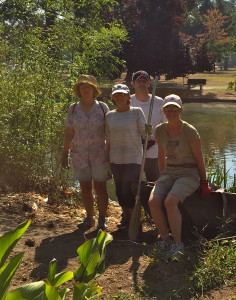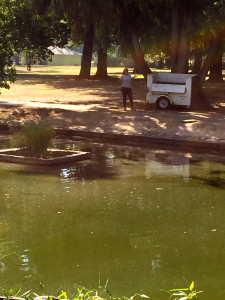Subscribe to our Newsletter!
 East Sacramento Preservation
East Sacramento Preservation- Community Meeting Announcement—Major East Sacramento Development 05/17/2025
- Tree Planting Season Wrap-Up at McKinley Park 04/13/2025
- 🌳 Volunteers Needed for McKinley Park Tree Planting! (March 29)🌳 02/19/2025
- East Lawn Memorial Park Guided Historic Walking Tours 02/08/2025
- 20 Is Plenty Lawn Sign Available 02/04/2025
Category Archives: Preservation District
Lawsuit Against McKinley Village – Appellate Court Hearing Set
Below is information from East Sacramento Partnerships for a Livable City regarding their suit against McKinley Village, including a link to the legal brief.
Dear Friends and Neighbors,
The lawsuit brought by East Sacramento Partnerships for a Livable City (ESPLC) to protect our neighborhood and future residents from the dangers of the McKinley Village project will be heard on Monday, September 19, 2016. ESPLC will present oral argument to a panel of judges at the Court of Appeal in Sacramento.
ESPLC pursued legal action after all attempts failed to persuade our City leaders to put the interests of City residents above special interests of developers. ESPLC continues its advocacy for first preserving, protecting, and improving environmental quality of life for residents throughout Sacramento. Common sense reveals the dangers and irresponsibility of approving a residential housing complex on an island of land surrounded by a major freeway on one side, high‐volume railroad tracks on the other, and bordering a former landfill:
• Increased cancer risks up to 12 times the accepted standard.
• Noise and toxic air particles from the anticipated 100 trains per day that require installation of air filtration units inside all of the homes and will render the outdoor portions of these residences, and project playgrounds, virtually unusable.
• An additional 1.2 million vehicle trips per year generated by this car‐dependent project through our already‐congested neighborhood.
• Potential methane contamination from the adjacent landfill site and inadequate monitoring systems that two independent agencies have described as not “fully effective in detecting and/or controlling landfill gas migration.”
These dangers, and many others, are simply too grave to ignore, and will never go away. ESPLC encourages you to join in support of our advocacy for common sense and for a fair and just public process by attending the oral argument before the Court of Appeal and by reading ESPLC’s attached legal brief. The oral arguments are open to the public and typically last less than an hour.
When: September 19, 2016
2:00 p.m.
Where: Court of Appeal of the State of California (Third Appellate District)
Stanley Mosk Library and Courts Building
914 Capitol Mall, First Floor
Sacramento, CA 95814
Case Name: East Sacramento Partnerships for a Livable City v. City of Sacramento, et al.
Case No. C079614
ATTENDANCE
For those attending the hearing, please plan to arrive by 1:30 PM. We have visited the Court and spoken to the security officers about procedures. Business or business casual attire is appropriate. Electronic devices (including cell phones), food, and drinks are not allowed. Visitors are asked not to speak once inside the courtroom and proceedings have started.
PARKING
The parking lot closest to the Library and Courts Building is the City Parking Lot on L Street between 10th and 11th Streets. Entrance is on 10th Street between L and K Streets. Payment is collected by credit card at the “Pay Here” machine on the 10th Street side, or by cash on the 11th Street side. (It is a large facility used by downtown employees but usually has plenty of room.)
THANK YOU
For your support of our neighborhood efforts to preserve and to protect the quality of life for all people within the City of Sacramento through advocacy of common sense and a fair and just public process.
Posted in McKinley Park, McKinley Village, Uncategorized
Tagged Angelides, calming traffic, city of sacramento, East Sacramento, East Sacramento Preservation, McKinley Village, McKinley Village Lawsuit, meagan garcia norris, Smart Growth, traffic
Comments Off on Lawsuit Against McKinley Village – Appellate Court Hearing Set
Neighbors Came Together to Save the Pond—Now You Can Help Determine Its Future
Come to the Pond Meeting with City Council Member Harris this Monday, October 19th at 6pm in the Clunie Center to help determine McKinley Park Pond’s future.
The McKinley Park Pond, an idyllic spot for many of us who grew up in East Sacramento, now struggles to survive. Neglect, pollution, and maltreatment of wildlife have colluded to worsen its chances. Some people noted the decay, or noted the ducks with crooked wings, saw and smelled the sludge-like water, but didn’t see it for what it was: a local landmark choking to death.
Then Judy McClaver stepped in. An R.N., McClaver knew the ducks’ wing deformity was caused by malnourishment. She began to lobby the City to halt the pond deterioration. Here she came up against another problem: bureaucratic passivity and funding problems. Not one to linger while officials dithered, she got to work on her own.
She educated her neighborhood association, East Sacramento Preservation, and went daily to the pond to assess its needs, remove debris, to do what she could. She used a boat to get to the island in the pond, an island tangled with overgrowth and bamboo. The entire pond environment was dying, choked by pollution, neglect, mistreatment. The more she saw and learned, the more urgent the mission became. It was as if she had taken to heart Emerson’s words—“You cannot do a kindness too soon, for you never know how soon it will be too late.”
Once she raised awareness, others came. Since last May she’s had a team of citizens who help patrol and administer first-aid to the pond and the untended island in its midst. Every other Monday Claudia Kirkpatrick arrived to help with pruning, weeding, watering, digging, planting.
The bamboo had to be removed, a daunting project for a hot summer. Jeremy Roberts came out two to three times a week in August. “He definitely helped move the project along faster,” McClaver says. “He used a mattock to dig out the bamboo below the surface to about a foot down to remove the rhizomes. It was hot, dirty, hard work.” Joe Mangello, Dave Edwards and Joanne Edwards volunteered for this a day in May.
Thanks to East Sac Hardware, the mattock was kept good and sharp.
Greg Lim helped with irrigation and volunteered to remain on board to help again when McClaver determines the best method. Lim also serves on the City Pond committee with McClaver.
Alice Tomkins, Linda Brown, Annette Anderson, Kendra Asbury, Mary LaCalle, Margie Kirk, Liz Rizzo and daughter Elizabeth all helped gather bamboo debris and piles of roots from the island to the boat, rowed it across the pond to a trash trailer, loaded it into the trailer and rowed back to the island for the next haul. “Each day a trailer was completely filled,” says McClaver. This strenuous work was done in the hardcore heat of Sacramento Summer.
Volunteer projects can be fun and rewarding when you’re decorating for the fall festival or stringing up Christmas lights on a brisk morning. But schlepping bamboo and garbage while baking under our relentless summer sun is something else again. Judy McClaver and her team of volunteers soldiered on through the heat and filth to help restore health to a living landmark. Park picnickers and playground users may not fully appreciate what these workers do, or why. Officials may feel pressured by them. Most people ignore them. But we know who they are and what they do. We are profoundly grateful to Judy McClaver and her team, and we thank them.
Judy and volunteers will be at the meeting. East Sacramento Preservation also requested that City Fire and Police representatives attend to help the community understand the safety risks. Come and participate.
Posted in Animal Welfare, McKinley Park, McKinley Park Pond, Preservation District
Tagged judy mcclaver, mckinley park, pond, Urban Wildlife Sacramento
Comments Off on Neighbors Came Together to Save the Pond—Now You Can Help Determine Its Future


















 Subscribe In A Reader.
Subscribe In A Reader. Check Us Out On Facebook!
Check Us Out On Facebook! Check Us Out On Twitter!
Check Us Out On Twitter! Visit Nextdoor!
Visit Nextdoor!








